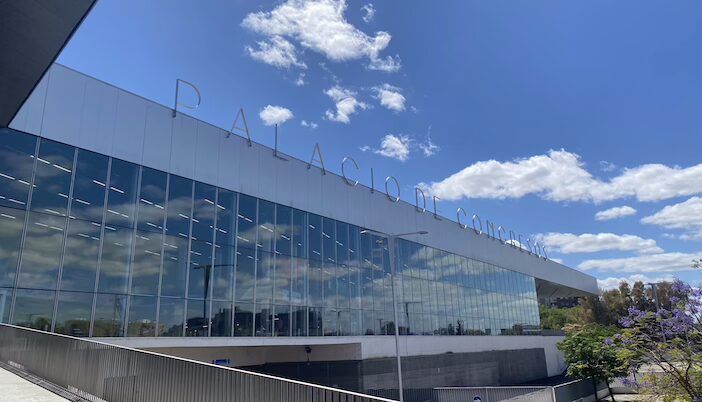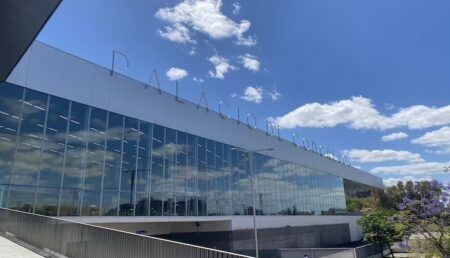At the ITS European Congress in Seville Moumen Hamdouch, head of unit for Sustainable and Intelligent Transport at the European Commission, highlighted the €1bn investment that is planned by the commission in mobility programs.
The substantial funding commitment comes as part of broader efforts to boost Europe’s competitiveness in the rapidly evolving automotive sector, with ambitious timelines for deploying connected and automated vehicles and establishing cross-border testing corridors.
“In the Horizon Europe program, the commission will make available €1 billion to support activities on connected and automated mobility, as well as next-gen battery technology that will boost the twin transition in the transport sector with sustainability and digitization go hand in hand,” said Hamdouch.
The Commission has set concrete targets for automated vehicle deployment. “By the end of 2025 we will approve a series of vehicles with automated valet parking systems, and we will expand use cases like hub-to-hub freight transport by 2026 we are also establishing large scale cross border test beds for autonomous driving.”

These cross-border corridors will require harmonizing traffic rules across different countries. “We’ll have corridors along different countries to test also automation, because you need to change all the traffic rules for these specific countries to harmonize them. So it’s very important that we have some test beds so that we can actually generalize it afterwards,” he said.
The automotive industry is at a critical juncture as it transitions to zero emissions, connected and automated vehicles. “The European automotive industry is at a crossroad as it transitions to zero emissions, connected and automated vehicles,” Hamdouch said. “The sector is facing significant challenges in maintaining its competitiveness, particularly in strategic areas such as batteries, software and automation.”
In response, the European Commission presented an industrial action plan on March 5th focusing on five key areas: innovation and digitalization, clean mobility, competition and supply chain resilience, skills, and level playing field.
Adding to the discussion, Ana Luz Jiménez Ortega, head of traffic for Seville and coordinator for Traffic General Directorate, Ministry of the Interior, Spain, highlighted the country’s DGT 3.0 connectivity platform: “DGt 3.0 builds upon the national access point as required by the its directive, incorporating real time data from bureau of security and traffic management related systems,” she said.
The platform provides critical safety services including alerts about vulnerable road users, working zones, and emergency vehicles. “DGT 3.0 platform also integrates urban mobility data, like low emission zones in Spain for logging and logging areas helping cities improve in issues like goods distribution or traffic flow,” Jiménez Ortega said.





